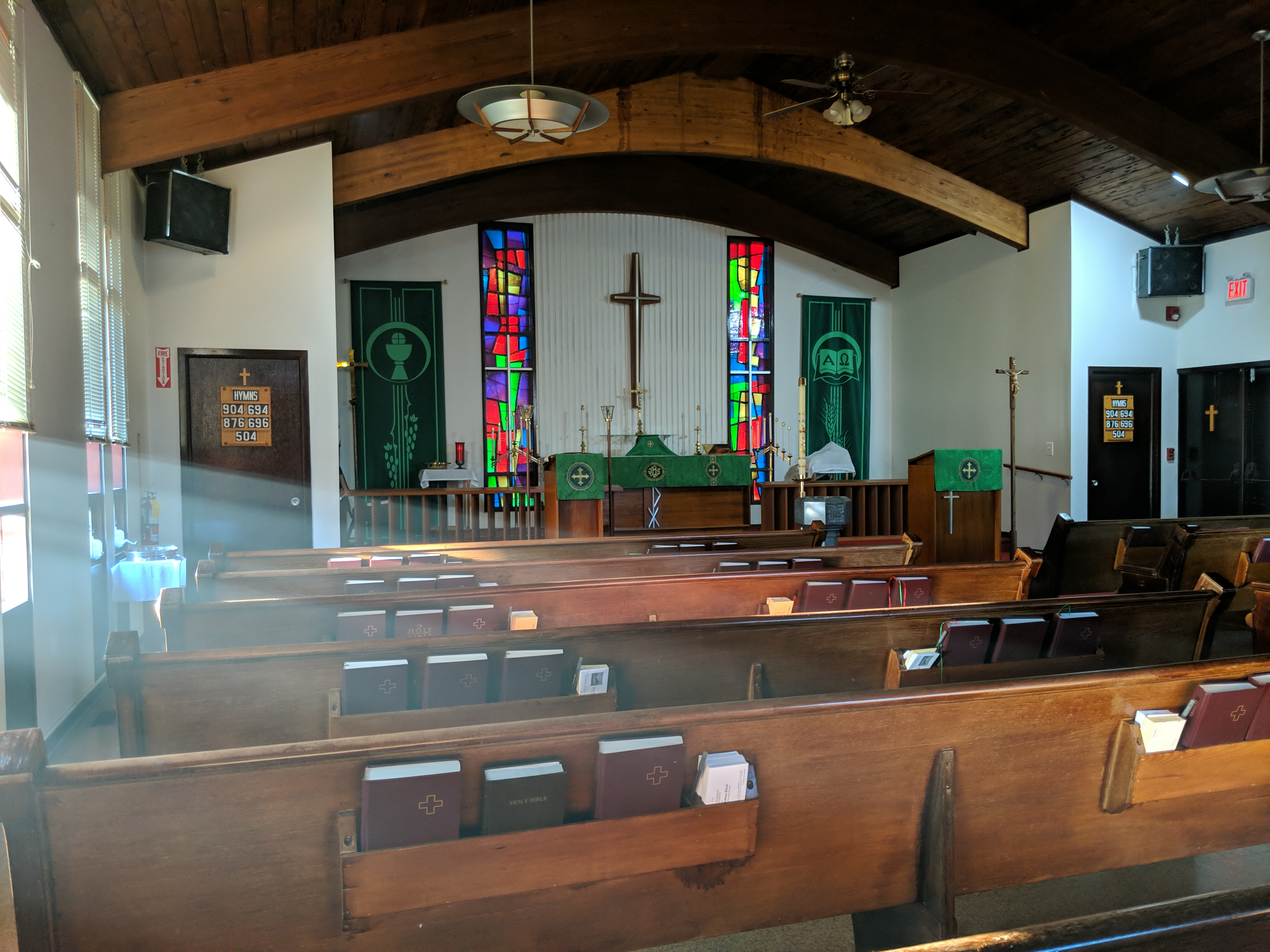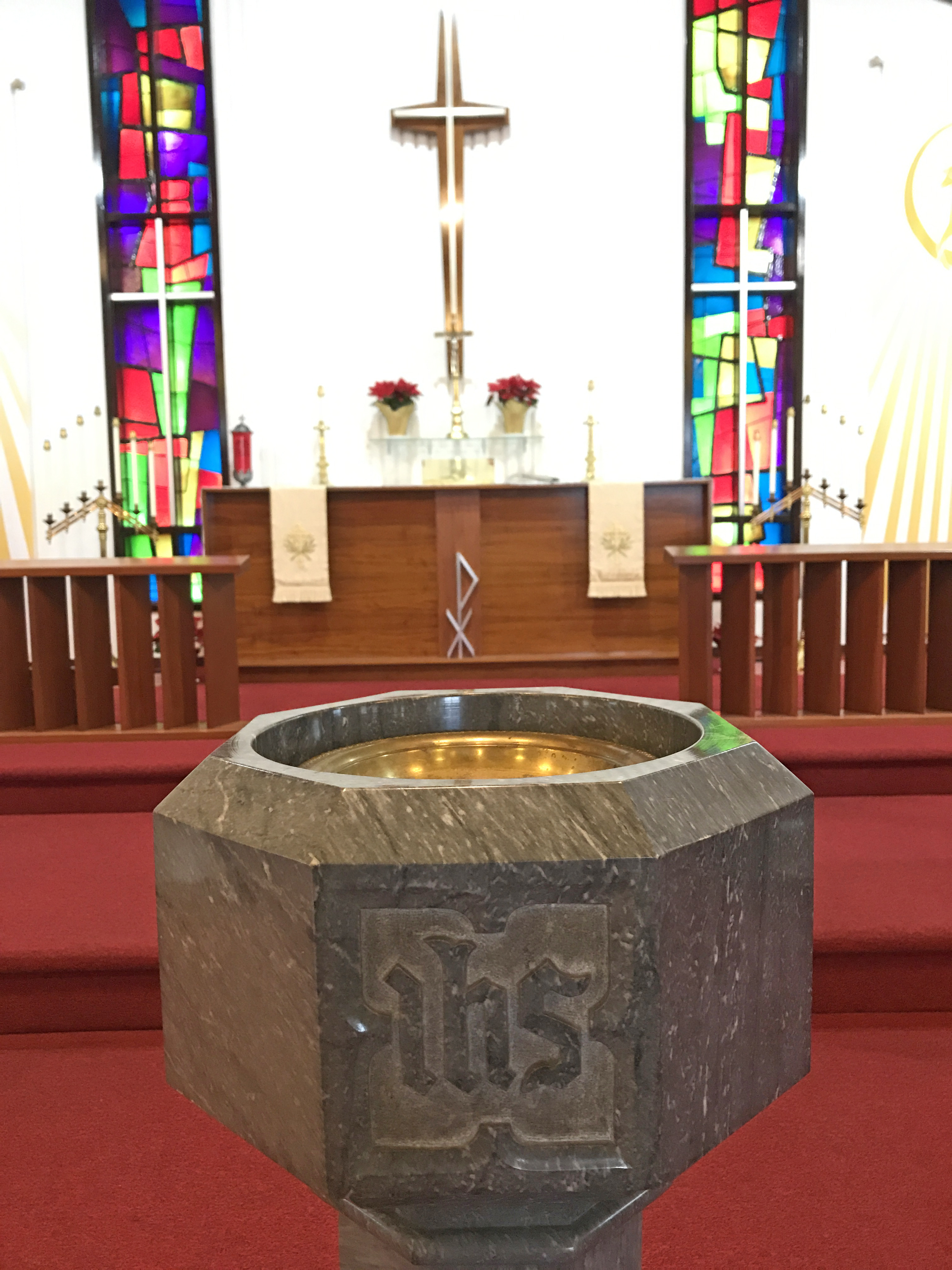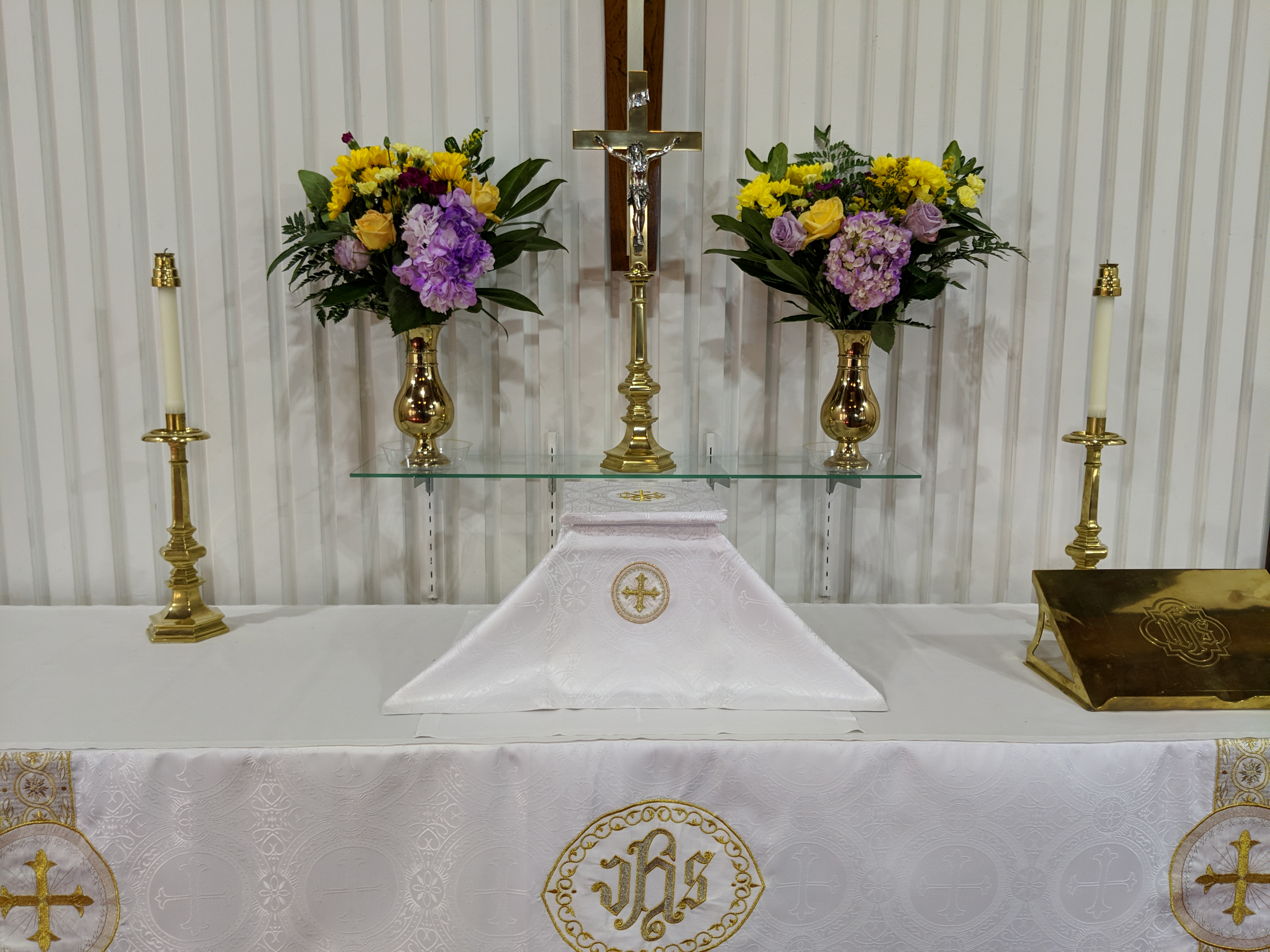Sexagesima – Sunday 4 February A✠D 2024
✠ Psalmody: Psalm 44:23, 25a, 26a;1–2, 7–8;83:18, 13;60:1–2, 5
✠ Lection: Isaiah 55:10–13;2 Corinthians 11:19—12:9;St. Luke 8:4–15
In the Name of the Father and of the ✠ Son and of the Holy Spirit. Amen.
Our dear Lord Jesus graciously tells His disciples and us that the seed that is sown in the parable is the Word of God. His parables do have meanings in them that are for our understanding, by the enlightenment of the Holy Spirit to understand spiritual things, but the same meanings are hidden from those who do not believe. This means that the parables are for your benefit, dear saints in Christ. This means that the seed being the Word of God is a Gospel truth given to you for your eternal delight. One might even say that the focus on the Word is the main thrust of the parable, but just like the rest of the Bible, there is so, so much in what Jesus says for us to slowly think about. Remember that this is Almighty God by Whom and through Whom all things were made. He is omniscient, all-knowing, meaning that He can build story in which we may dig, not as archaeologists uncovering dead things, but as delighted gardeners that constantly gasp at the beauty and might of the Creator Who loves us.
Neither the parables nor Scripture as a whole is given to us so that we have an information source, a mere plain dirt path leading through a desert of life. The modern mind sees the blessing of wisdom as a task to be hurried about. How we move lightning fast from one thing to another in life, strip-mining merely for the bits and bites of information that we think we need, has conditioned us to blow right by the true blessings of Scripture and we deprive ourselves of the pleasure that God has crafted into the eternal masterpiece of His Holy Word. The Lord warns us against this. He bids us, urges us, commands us in what is good concerning His Word because He knows why He has given it to us, and as He is, His intention is good.
The Lord’s Third Commandment says to us Remember the Sabbath Day by keeping it holy, or, if you prefer an older translation, Thou shalt sanctify the holy-day. Regardless of the language in which you most like to hear it, God’s point is the same: We are to intentionally do something regarding the Sabbath, or holy-, day. We are to remember it. We are to sanctify it, or as I like to say in Bible Study, we are to holy-fy it. What does it mean for something to be made holy? It means that we set it apart in a godly way; that we do not allow it to resemble what is common, and in this case, that by godly activity in which we participate, the Sabbath Day intentionally looks different in our lives. Christians set aside one day out of every seven, the Lord’s Day, so that we can keep it holy and God can give us the rest in it as He intends.
Luther explains the meaning of the commandment further in that We should fear and love God, so that we do not despise preaching and His Word, but hold it sacred and gladly hear and learn it. The explanation begins with godly exhortation, that we should fear and love Him. We fear disappointing our loved ones. We’d rather have joy in one another and not bring about sadness by our actions. In what way does this commandment teach us to go about fearing and loving God? In what way does it teach us that we are able to keep every Sunday holy? In the way of not despising preaching and His Word. Luther makes it very clear that to despise God’s Word is to keep yourself from hearing it preached. To fear and love God is to keep Sunday holy by coming to hold His Word sacred through intentionally and gladly hearing it and learning it. The invitation is simple, but the flesh is weak. The new man is strengthened by disciplined and regular hearing and learning of God’s Word.
The parable teaches us about four soils, or four results from the Word being spread. Three out of the four end up with nothing lasting. It is a heart-breaking reality for those who are made good soil by the Good Seed, for they see the peril for the rest. They see that some hear the Word, maybe even for a period of life, but instead come to believe the devil’s words, despise God, and are not saved. The good soil sees that others hear the Word and receive it with joy, believe for a while, but in time of temptation fall away into a perilous, temporal joy. And the third group that is seen not to be good are those that hear the Word of God but are choked with cares, riches, and pleasures of life, and they bring no fruit to maturity. These are clear warnings from Christ, and yet another unsaid one accompanies them. These are all warnings about what happens when one hears the Word of God, therefore, how much more perilous is it for those who despise preaching and His Word; those who refuse to even hear it in the first place. Such risk is immeasurable, because, indeed there can be non-Christians among those who gather around preaching and His Word in local congregations, but there can’t be Christians who despise preaching and His Word by keeping themselves from the assembly of the saints in the local congregation as the Sabbath day is kept holy.
It’s more than skipping a TV commercial, ignoring an email, or letting a phone call go to voicemail, because not only is the Word of God alive and deeper, richer, and more significant than all the other inputs that you have, but it’s more than even how you’ve thought about it as it is read or preached in Church. The Scriptures teach us how to understand what is meant by The Word. It can refer to the 66 books of the Holy Bible, For the word of God is living and powerful, and sharper than any two-edged sword, piercing even to the division of soul and spirit, and of joints and marrow, and is a discerner of the thoughts and intents of the heart. The Scriptures are sharp unto us in this way. This cannot be denied.
But if you think back just to Christmas and what we heard that morning, you will remember a closely-related, yet distinct, meaning of The Word. In the beginning was the Word, and the Word was with God, and the Word was God. He was in the beginning with God. All things were made through Him, and without Him nothing was made that was made. In Him was life, and the life was the light of men. Understand Jesus, your Savior, to be the Word of Whom the Lord speaks through the prophet Isaiah, as it is written “As the rain comes down, and the snow from heaven, and do not return there, but water the earth, and make it bring forth and bud, that it may give seed to the sower and bread to the eater, so shall My Word be that goes forth from My mouth; it shall not return to Me void, but it shall accomplish what I please, and it shall prosper in the thing for which I sent it.” Jesus, the Word made flesh, accomplished all for which the Father sent Him forth. He gives bread to the eater by Himself being the Bread of Life, prepared in the oven heat of God’s wrath upon the cross, broken and given for you to take, eat, and be satisfied in body and soul.
Only in the beauty of the Holy Scriptures can we see that Jesus is, in a sense, both the Sower and the Seed Itself, for there are many magnificent layers to this story of God that He Himself has preserved for you. Christ is the Promised Seed of the Woman, Who would be cast into the earth to bear a harvest a hundredfold. He said, “Unless a grain of wheat falls into the ground and dies, it remains alone; but if it dies, it produces much grain.” And so, He does, for you.
So, to despise preaching and His Word is to fail to see Jesus as He makes Himself known in the Scriptures and in the breaking of the bread as we gather around where He so graciously and bountifully sows by both. Come, hear Him! It is in these means of grace that His nourishing Holy Word comes to you in the public reading, in the ordained proclamation, and in the Blessed Sacrament where by the Word of His own Testament He feeds you His Body and Blood for the forgiveness of your sins. This is no mere bit of information that matters not whether you despise it or hold it sacred. This is your Savior faithfully feeding you with what you need to fight well against the devil, against temptation, against the cares, riches, and pleasures of life. And so that you, having heard the Word with a noble and good heart, keep it and bear fruit with patience. For the Word having His way with you to make you good soil is the priceless benefit of keeping the Sabbath day holy, here with Christ; the Seed, the Word, the Sower, the Savior…yours. He who has ears to hear, let him hear!
In ✠ Jesus’ Name. Amen.












Comments are closed, but trackbacks and pingbacks are open.